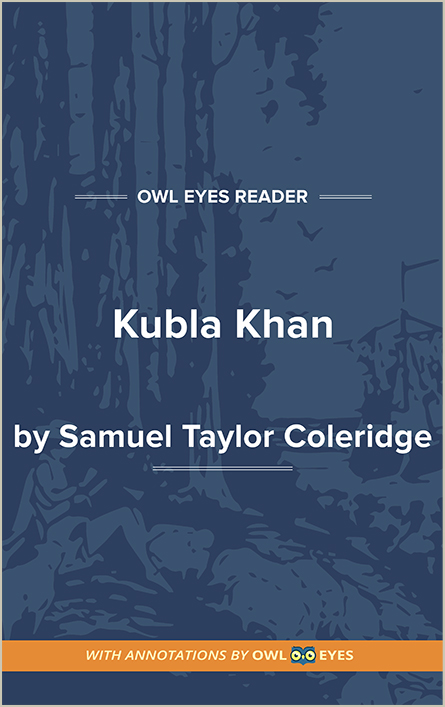Study Guide
Analysis Pages
Summary
“Kubla Khan,” tagged as a fragment, has two parts. The first is a mostly prose introduction in which Coleridge recounts the circumstances under which he composed the following lines of verse. He confesses to having fallen asleep after taking medication for a minor complaint while meditating upon a voluminous travelogue. Asleep, he dreams the images that, upon waking, he dashes down as the poem. Unfortunately, he is interrupted by a man from Porlock, a nearby town, and when he is again able to write, he recalls little more. Additionally, Coleridge announces that he is publishing this fragment, written years before, only at the behest of the deservedly famous (as he ingenuously notes) Lord Byron. Thus, in short order, Coleridge blames a book, sleep and dreams, drugs, a visitor, and Byron for this curious and cryptic poem rather than bravely taking responsibility for it himself.
Coleridge’s insecurities prevented his claiming a masterpiece. The poem proper is also bipartite. Its first section describes how, godlike, Kubla Khan creates an entire world, a kind of Eden, merely by utterance. His decree animates a world of fountains and rivers, caves and gardens, energy and peace, an enchanted and hallowed place that seems to represent the origins of life, consciousness, and art. Within this Eden, conflict, a fall, is predicted, for the emperor hears ancient war prophecies.
Abruptly, the poem switches to a dream of an Abyssinian dulcimer-playing maiden singing of a holy mountain. The poet declares that, were he able to recall her song, which in a way he has just done with lines that evoke her, he would also be able to duplicate Kubla Khan’s invention, which he has actually also just done in writing the foregoing, and his witnesses would attest to his inspiration, his art, and his prophecy.
What Coleridge has done is to celebrate his poetic artistry and its kinship with the creative and prophetic powers of religion and humanity’s deepest desires.

